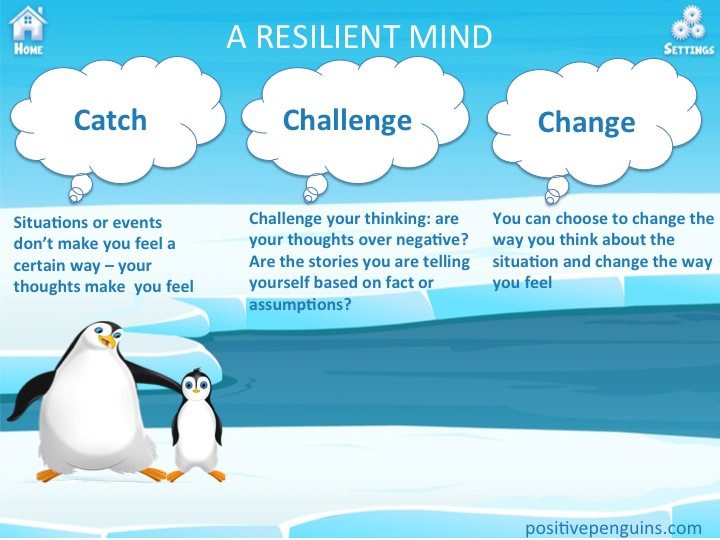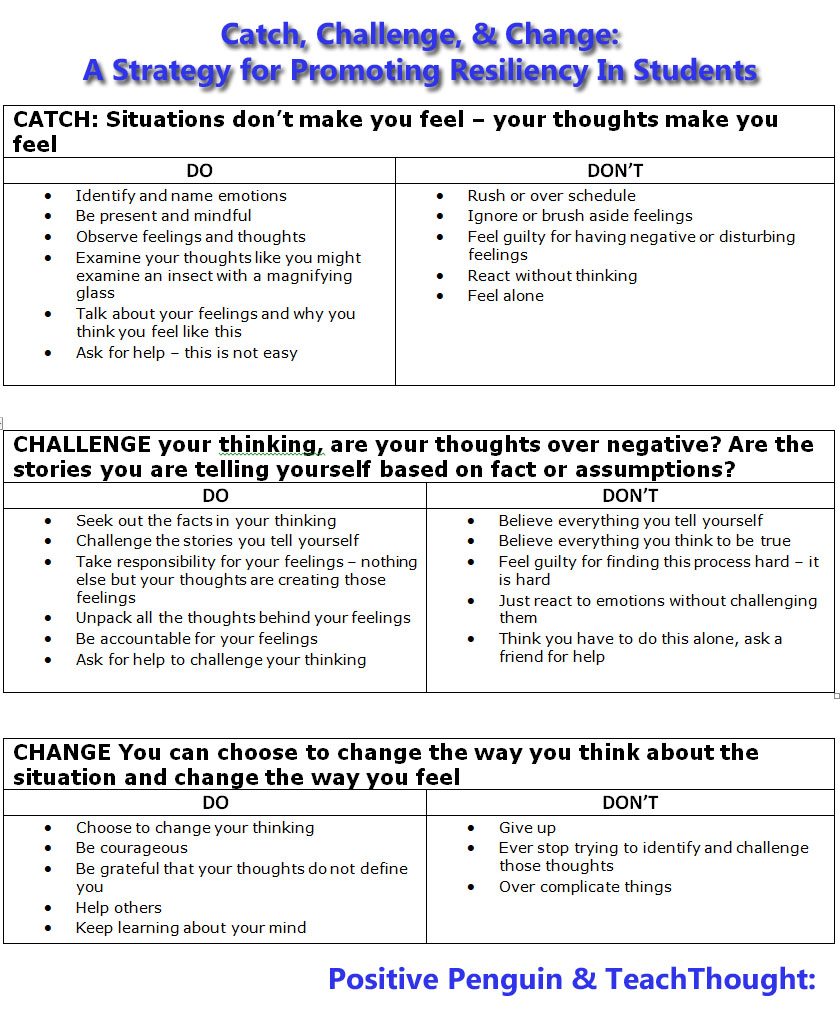
How To Promote Resiliency In Students?
contributed by Positive Penguins
Do you foster an anxious mindset or a resilient mindset in your children or students?
The USA is currently the number 1 most anxious country in the world with 27% of the population living with anxiety and depression. In Australia 20% of the population experience a mental illness in any year. In the UK 1 in 4 people will experience some kind of mental health problem in the course of a year and about 10% of children have a mental health problem at any one time.
Thankfully these countries and many others have wonderful organizations to help people suffering from anxiety and depression and related issues. But each of us must be more proactive in changing these statistics for our future generations. What can we do to foster a resilient mindset in young people? Catch, Challenge, and Change is one of many possible strategies for promoting resilience in children and students.
Catch, Challenge, Change: A Strategy For Promoting Resilience In Children
If we encourage children to really understand where feelings come from and look into how their minds work. Empower them to be everything they can be. We may be teaching children about emotions and encouraging them to have a vast emotional vocabulary, and teaching them how to behave appropriately when they experience emotions, but we need to take this further. It is absolutely okay to feel sad, angry, worried, anxious and all those negative emotions we have but we need to teach our children to really understand the thoughts that sit behind these emotions.
Negative emotions exist, we all have them and they make us feel terrible but they do not need to define us.
Children need to understand our minds are running us and we must know our minds really well if we want to be happy, resilient, and successful. Above (in the graphic) are some do’s and don’ts to help teach children to identify the exact nature of their thoughts, unpack and challenge those thoughts and stories and change how they feel.
Meg Price is a mother of 3 and Director of HR Inside where they create human resource strategies and innovative learning programs that enhance the strengths people bring to their organizations. Her aim is to help people think differently and create new possibilities. Meg’s 11-year-old daughter Sara created an iPad and iPhone app, Positive Penguins to help children challenge their negative thinking.

